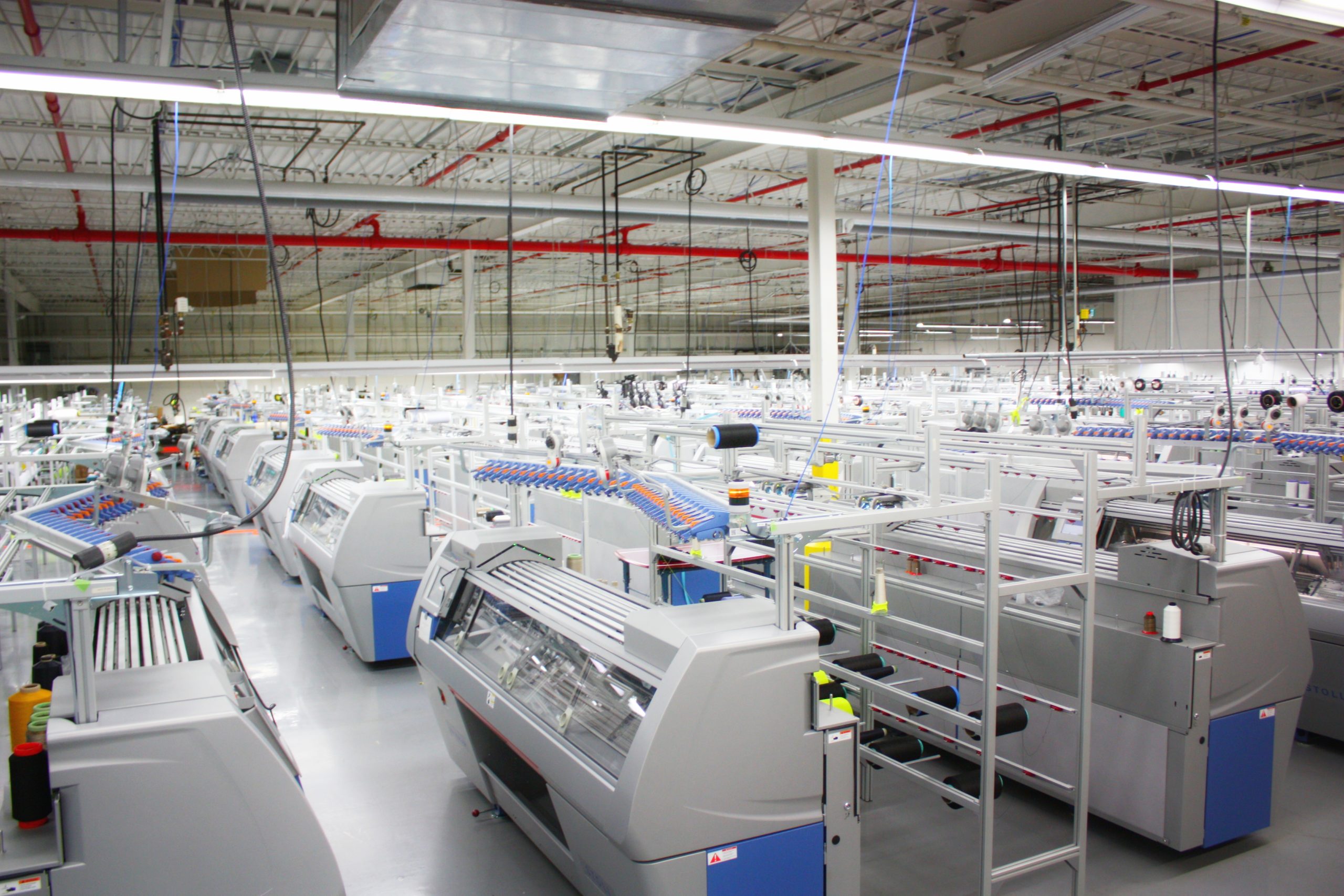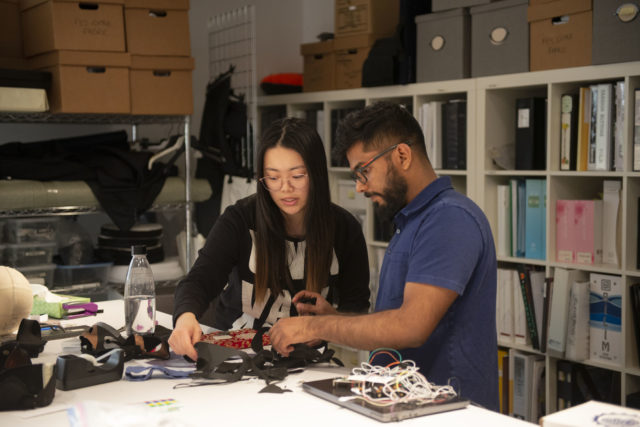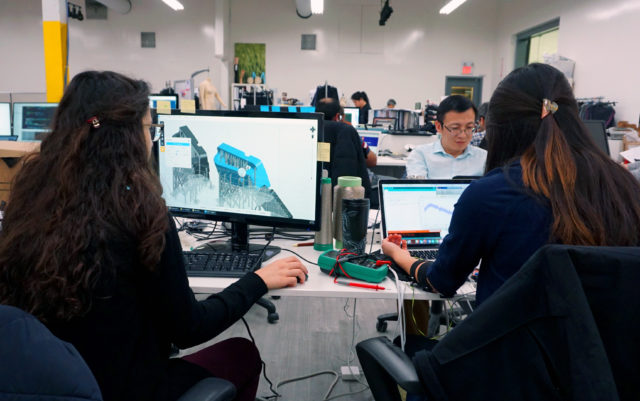-
Headquarters -
100 Ronson Dr, Etobicoke, ON, M9W 1B6
-
Year established -
2011
-
NAICS -
334512 - Measuring, medical and controlling devices manufacturing
-
Major expansions -
-
Employees -
130
-
Exports -
-
Download -
Myant
Founded in 2011, Myant develops smart textiles that are revolutionizing the textile industry for the healthcare and consumer markets.
Myant not only challenges the norms of the industry but also collaborates with other innovative start ups, manufacturers, and research institutes in Ontario to build an entirely new ecosystem around smart textiles. Tony Chahine, founder and chief executive officer of Myant, experienced first hand the difficulties associated with providing care for a loved one with dementia when his father was diagnosed with symptoms. He saw the need for a product that could track patients’ vital health information passively, without the need for them to put on a new device or press a button. That idea evolved into the goal of integrating capabilities of separate wearable technologies into everyday textiles.
In order to realize his goal, Chahine began looking into advances in textile sciences and engineering. Several research institutions – Ryerson University, University of Toronto, Drexel University, Cornell University, Massachusetts Institute of Technology, University of Alberta, RWTH Aachen University, and the University of Tokyo – had various research projects underway on textile materials that demonstrated connectivity was possible. Chahine and his team decided to purchase dormant patents from these institutions, which laid the groundwork for Myant’s Textile Computing platform.
Textile Computing, as Myant defines it, is the technology that connects the human body to the world around it through textiles.
Textile Computing, as Myant defines it, is the technology that connects the human body to the world around it through textiles. Capitalizing on the latest advances in various disciplines, the 10-year old Toronto-based start up knits everyday textiles out of conductive yarns and embeds biometric sensors and actuators into them. A proprietary software platform records and processes the data collected through the hardware, giving Myant’s products the ability to sense and react to the human body.
Becoming a manufacturer was not what Chahine had in mind when he founded Myant. But the fragmented and remote nature of the textile industry made prototyping and commercializing Myant’s revolutionary idea within a reasonable time frame nearly unworkable. As the company’s executive vice-president Ilaria Varoli notes, at that early stage of the company the founding team understood that “innovation doesn’t take place without manufacturing and the art of making leads to the art of innovation.” That realization marked the beginning of Myant’s journey to become one of the world’s leading Textile Computing companies.
The company’s main product line, Skiin, was launched in early 2021. Skiin includes underwear, bras and tank tops that can collect health and wellness data including body temperature, heart rate, posture, location, and body activity. From this data the connected software platform generates meaningful insights, warnings and reminders related to the user’s health and well-being that can be shared with caregivers or doctors. While Skiin is the first commercially available product line Myant offers to the public, the company is busy developing products that have myriad applications from elderly care to space travel.
Developing and manufacturing the revolutionary set of products that Myant specializes in requires a unique group of talent. The multidisciplinary team of 130 working at the company’s 80,000 square foot facility includes textile, biomedical, and electrical engineers as well as data scientists, software developers, and fashion designers. This cohort reflects the company’s vision for the future of the textile industry and positions Myant ahead of the more traditional textile manufacturers that generally lag behind in innovation.
Myant’s factory features highly-automated flat, circular, and three-dimensional robotic knitting machines
Myant differentiates itself from traditional textile manufacturers not only by employing a multidisciplinary team but also by having highly automated production processes. In contrast to the typical shop floor at a traditional cut and sew manufacturer where workers sit behind rows of sewing machines, Myant’s factory features highly-automated flat, circular, and three-dimensional robotic knitting machines. The last of these are made by the industry leader Stoll by Karl Mayer, a German manufacturer of advanced textile machinery with whom Myant collaborates extensively to push the boundaries of what is possible in textile manufacturing. As production for Myant’s Skiin product line ramps up, the company expects to add 250 more machines, doubling its production capacity. Notably, as Varoli highlights, the driving force behind automation was the ability to innovate and not labour costs.
In addition to state-of-the-art production equipment, Myant’s facility has areas dedicated for laboratory testing, R&D, software development, and fashion design. Many of the company’s non-production personnel work on their computers in these spaces while automated knitting machines carry on their tasks quietly. A small cut and sew area at the back of the plant reminds visitors that Myant is still a textile manufacturer. Varoli explains that handcraft can never be out of the equation in fashion design and that space is vital to bringing new ideas to reality.
While the launch of Skiin marked an important milestone for the company, it took Myant a decade to develop. Part of the reason... was the lack of an ecosystem that could support Myant’s activities.
While the launch of Skiin marked an important milestone for the company, it took Myant a decade to develop. Part of the reason behind that long product development stage was the lack of an ecosystem that could support Myant’s activities.
The company knew from the start that it alone could not build the entire supply chain and ecosystem that were necessary to develop this emerging industry segment. So, collaboration has been critical – with scientists, researchers, machine builders, even Myant’s own competitors. In its early stages, Myant struggled to get the attention of suppliers, machine builders, and universities. That changed only when the company built up its manufacturing capabilities and demonstrated the potential applications of its products.
Those counterparts started to come to Myant to seek ideas on how to develop certain technologies, making exclusive collaboration agreements with the company. In-house manufacturing capabilities gave Myant the ability to help other stakeholders develop an emerging product segment more collaboratively, fostering innovation. However, Myant realized that insisting on exclusivity could slow down the uptake for its products by limiting other aspiring industry players entering the market. Therefore, the company became less protective of its intellectual property over time and stopped making exclusive agreements. It launched different initiatives that aim to democratize the sector.
Myant assisted Ryerson in opening a laboratory specializing in Textile Computing by donating some of its production equipment.
For example, Myant assisted Ryerson in opening a laboratory specializing in Textile Computing by donating some of its production equipment. At the same time, the company collaborated with the university to establish a curriculum to train the talent with the right combination of skills to further develop smart textiles. In the long run, this collaboration can alleviate some of the challenges Myant faced in finding experts to work on this emerging technology.
Separately, the company launched the Myant Digital Textile Exchange (MDTX), an online platform designed to connect those who would like to develop new smart textile products with manufacturers that have the capability to produce those. While this platform fosters innovation and helps increase the market penetration of smart textiles, it also facilitates setting certain standards (e.g. environmental, material, labor, design, etc.) across this emerging industry segment. The standards allow the platform to run seamlessly and democratize the ability to create and commercialize textile computing innovations.
From a strategic standpoint, Myant’s near-term goal is to expand in healthcare. To do that, the company has established partnerships with several key institutions in order to test and deploy its Skiin products. The Mayo Clinic based in Minnesota, Southlake Regional Health Centre in Newmarket, The Hospital for Sick Children (SickKids) in Toronto, Algoma University and the Sault Area Hospital are among Myant’s current partners.
Myant established its partnership with the Mayo Clinic in 2018 . That partnership focuses on the use of Skiin, to monitor heart activity and detect arrhythmia. Another partnership involves a clinical study with SickKids, the KITE Research Institute in Toronto, and the University Health Network. This study is testing whether an accurate electrocardiogram signal can be gathered by Skiin’s textile-based sensors to monitor pediatric patients with heart disease. Myant has also partnered with the Southlake Regional Health Centre in Newmarket to clinically validate the application of Skiin as a diagnostic modality. The Ontario government recently awarded Myant $1.5 million from the Ontario Together Fund to distribute its Skiin kits to 2,500 trial participants in a partnership with Algoma University and the Sault Area Hospital. The goal is to develop a better understanding of how entire communities might use and benefit from this product.
In addition to its healthcare applications, the Skiin garment innovation can change the workplace, by allowing employers to track factors that contribute to the health and safety of their teams. Employees’ activity and stress levels, body temperature, and their state of restfulness can be monitored across their shifts. Risks can be managed through early identification.
Applications are not limited to healthcare or workplace safety. The company has met with a space agency several times as it researches spacesuits that can give electromagnetic muscle stimulation to astronauts to reduce muscle atrophy during long space voyages.
It is no surprise that Myant still regards itself as a start up as it imagines novel areas of application for its revolutionary products. But the company already acts like a mature business as it lays the groundwork for other innovative start ups, manufacturers, and research institutes in Ontario to build an entirely new ecosystem around smart textiles.
Published: June 22, 2021
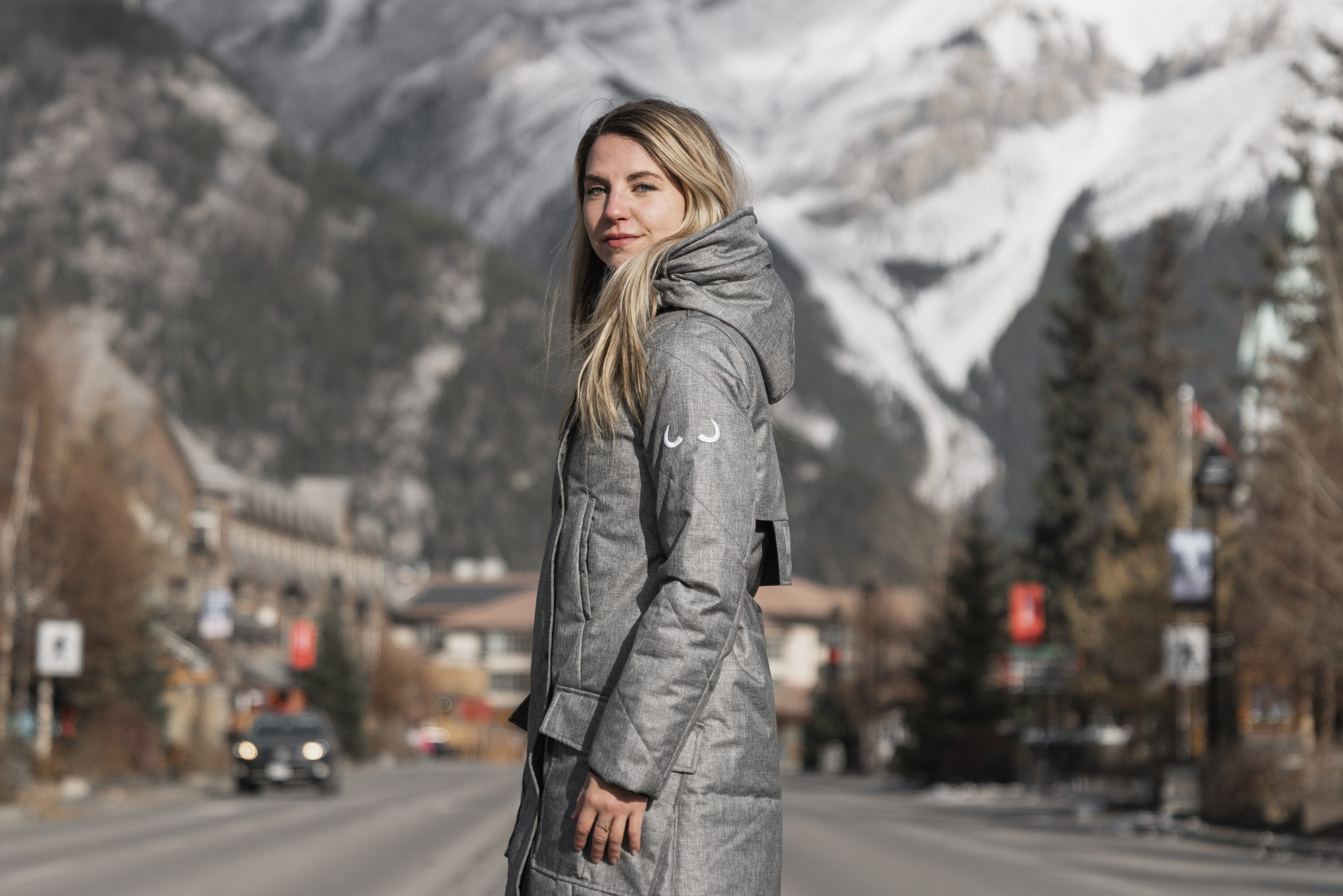
Wuxly Movement
Founded in 2013, Wuxly Movement designs and manufactures parkas in an environmentally conscious and sustainable manner. Wuxly's brand mantra is "Live Warm", which highlights the firm's goal of spreading warmth and kindness to all living beings and the planet.
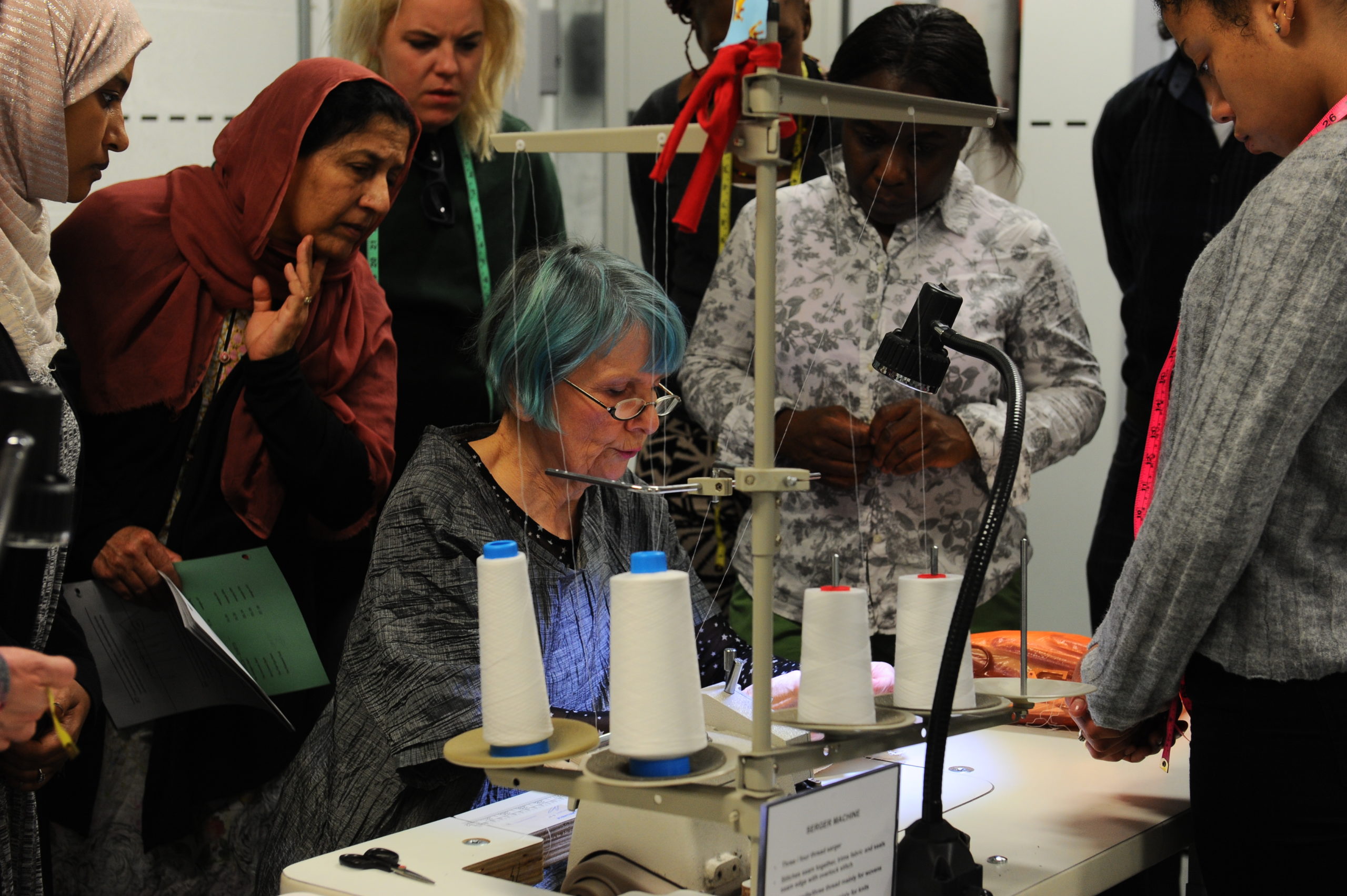
George Brown College Fashion Exchange
College’s Fashion Exchange (GBFX) fosters collaboration between fashion educators, industry partners, community organizations, and fashion graduates.
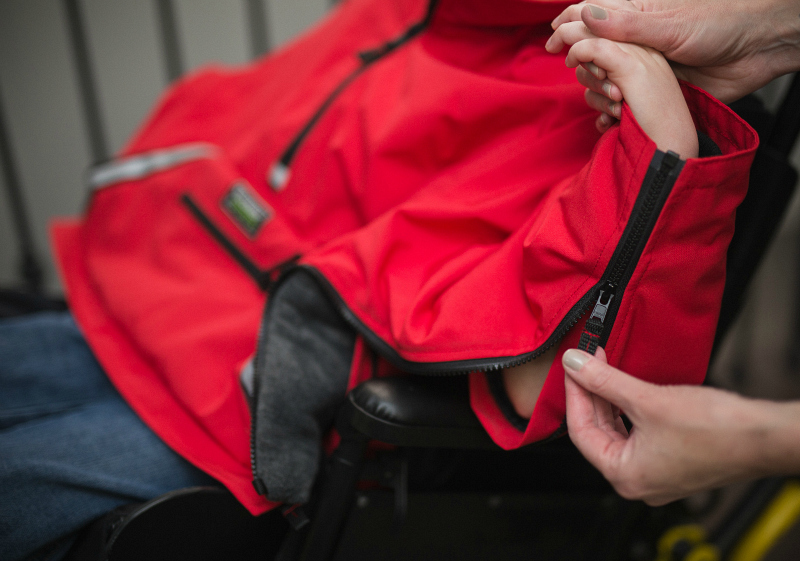
Koolway Sports
Koolway Sports designs and manufactures custom, high-quality, adaptive outerwear for individuals with disabilities, specially designed to be easily worn in conjunction with pieces of adaptive equipment, such as wheelchairs.
